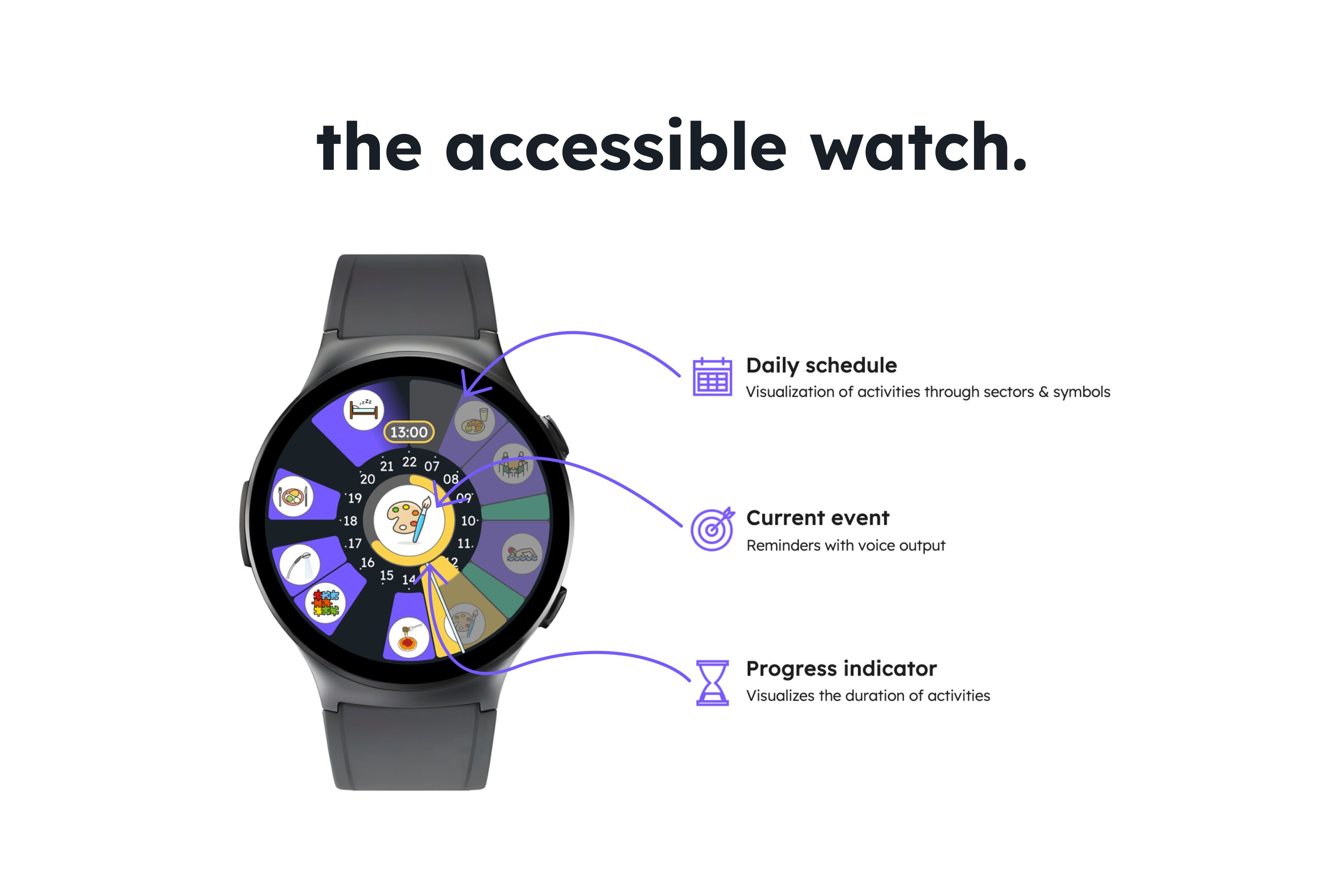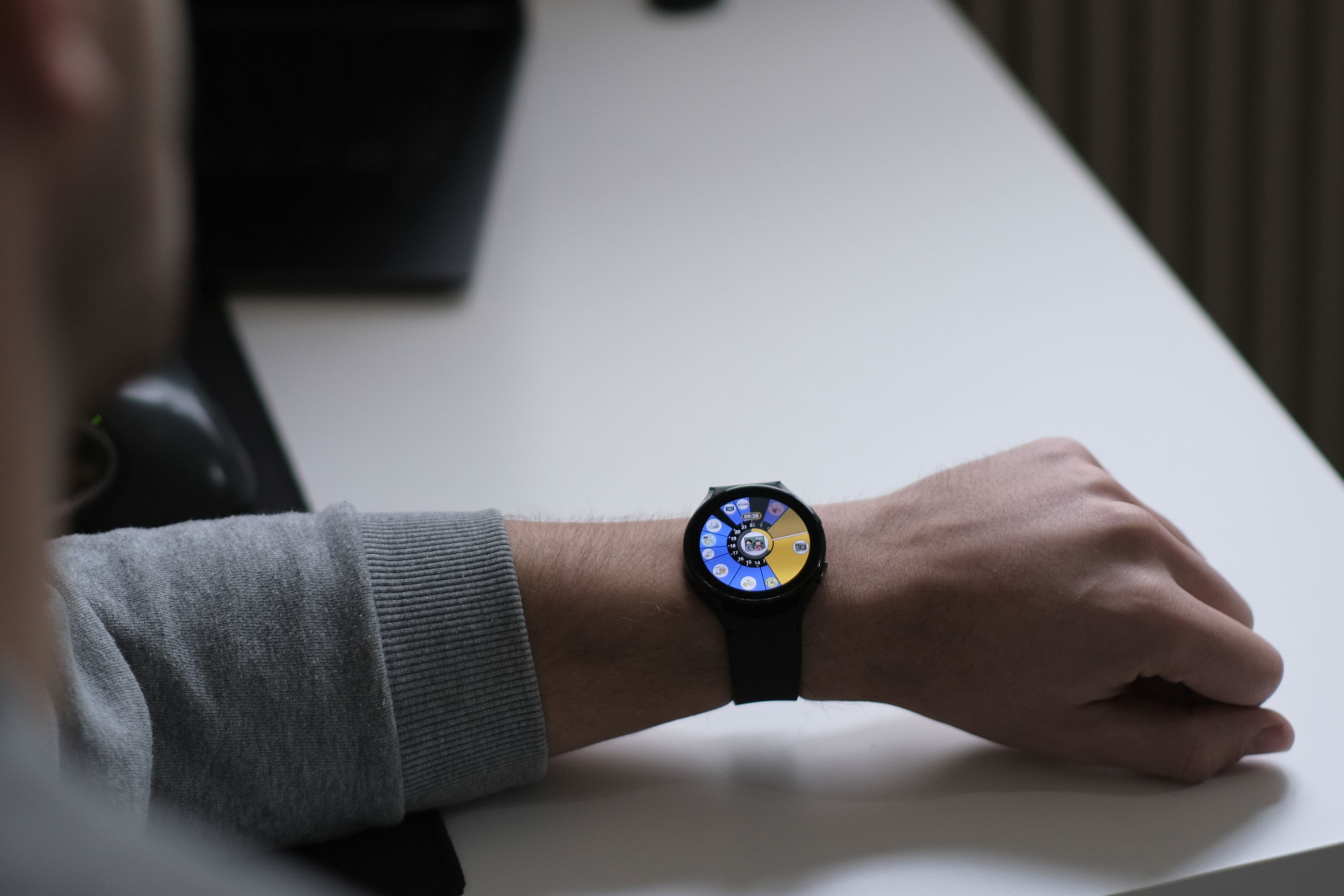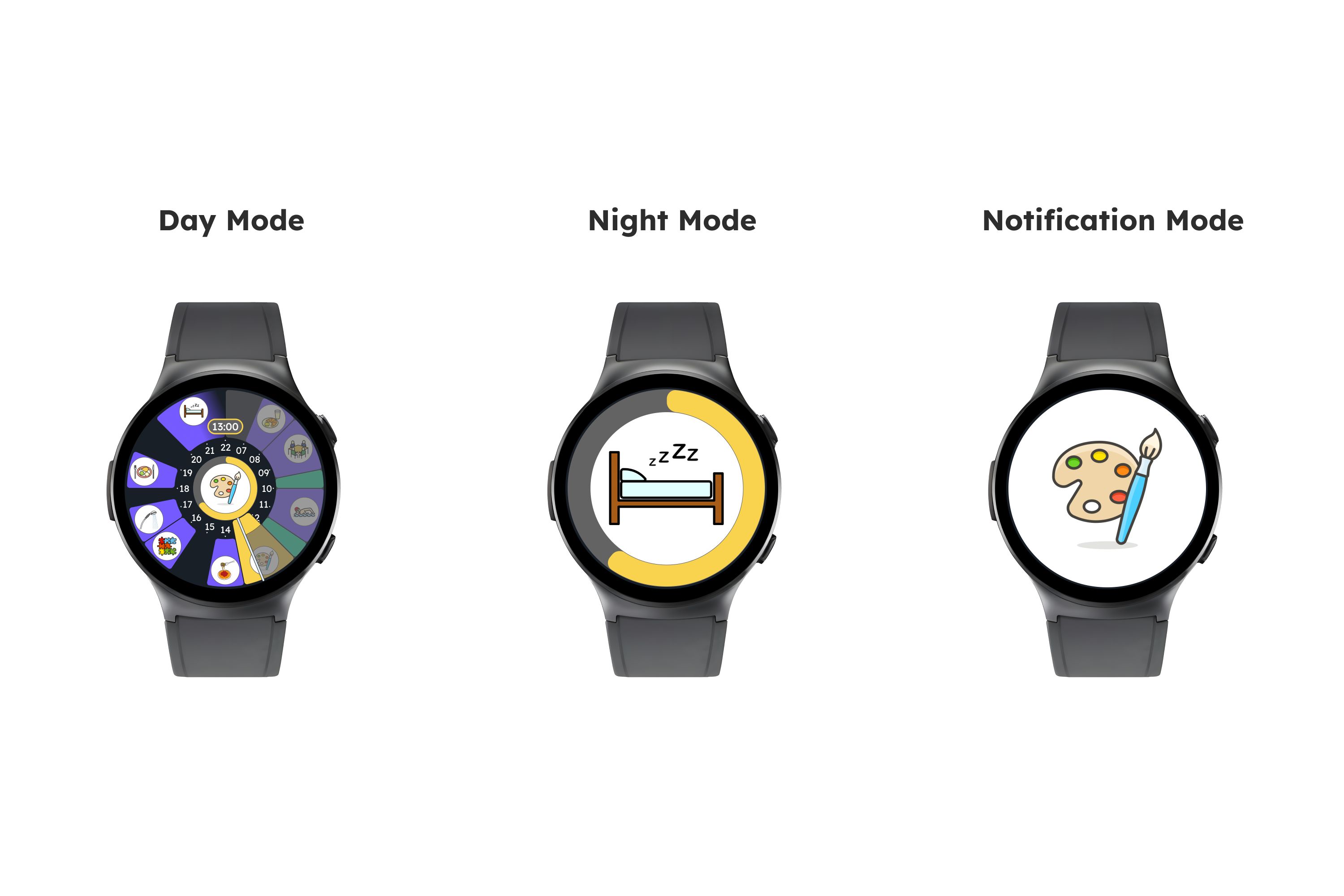Designers
Hauke Wendt, Alexander Kuon, Rahel Schneider
Year
2024
Category
New Talent
Country
Germany
School
Julius Maximilians University of Würzburg
Teacher
Stephan Huber
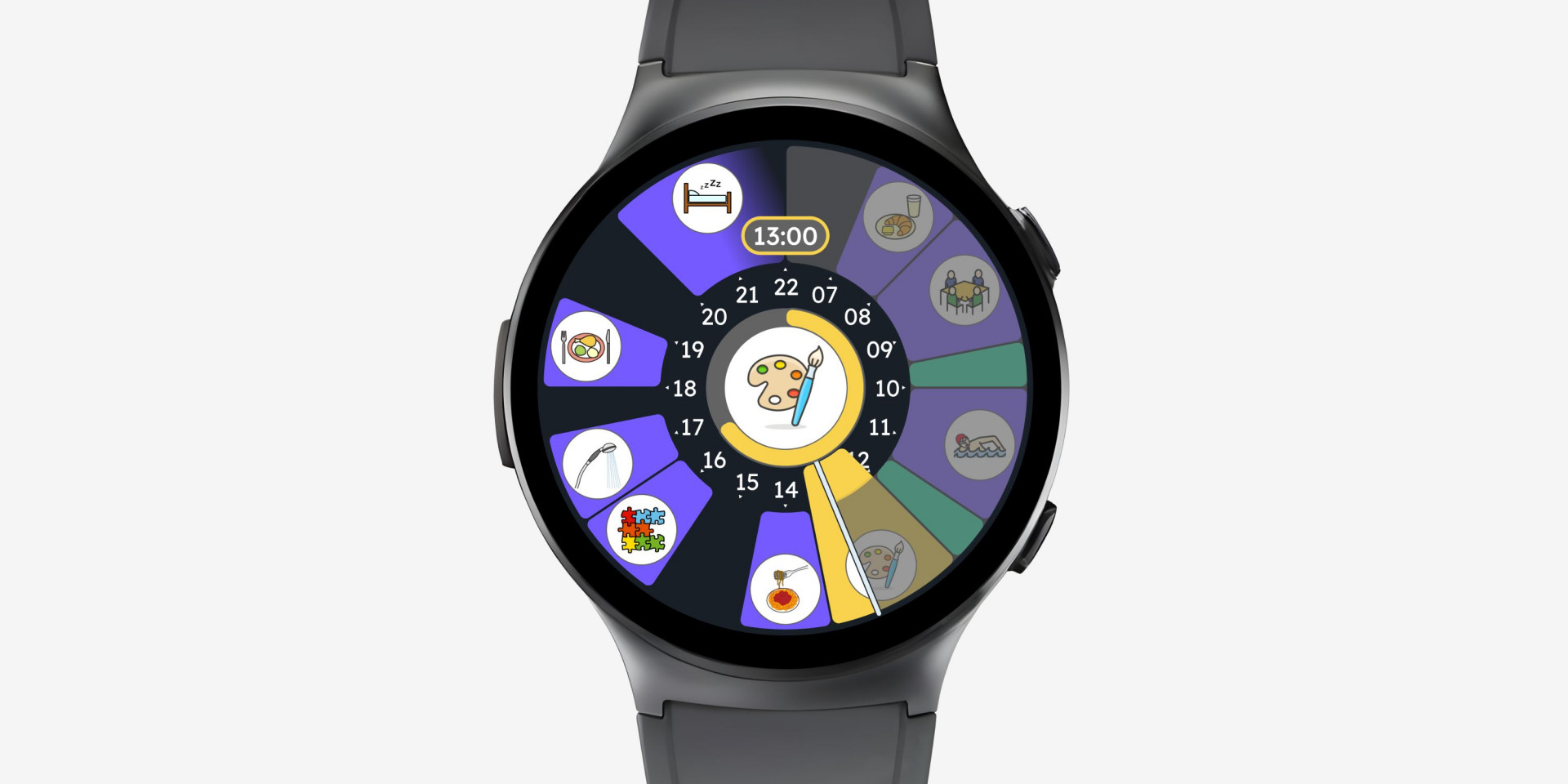
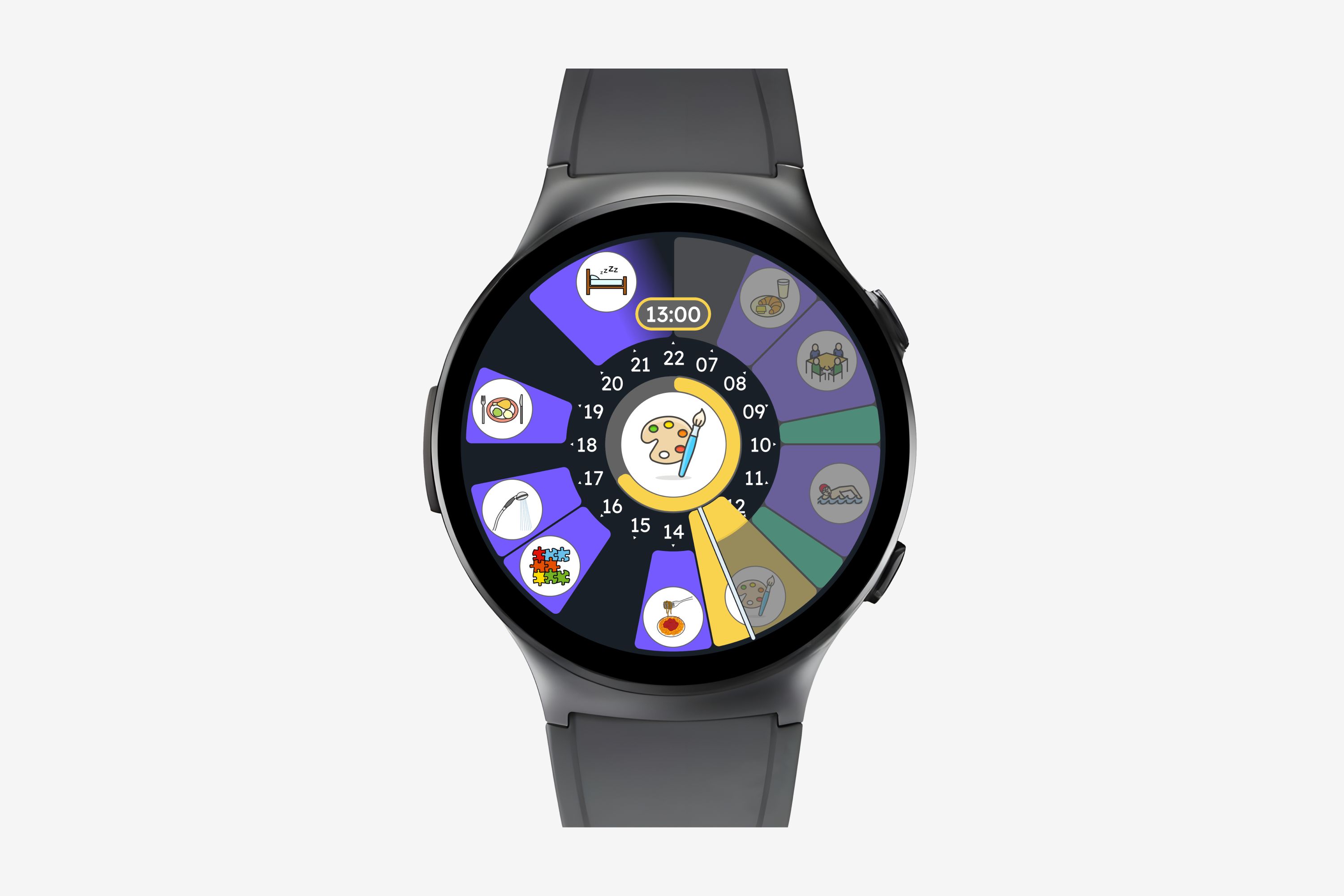
Three questions for the project team
What was the particular challenge of the project from a UX point of view?
The challenge of user-centered design lies in deeply understanding the environment and needs of the users. In our case, this was particularly difficult because we worked with individuals with cognitive impairments, including some who were non-verbal. Therefore it wasn't a textbook design process, but in the end, it was even more rewarding to see these users benefit from Zeitkompass.
What was your personal highlight in the development process? Was there an aha!-moment, was there a low point?
In our design process, we adhered to the accessibility design principle 'solve for one, extend to many.' This meant initially working closely with a single user to conceptualize an initial design. Two years later, we conducted a study to 'extend to many,' involving multiple users with diverse impairments. We discovered that they too benefited from Zeitkompass. It was definitely an 'aha' moment, confirming that this approach works!
Where do you see yourself and the project in the next five years?
The project has a university background of over 2 years. However, based on the extensive feedback we received from users and caregivers, we realized there is an actual need for a product like Zeitkompass. This is why we are now exploring options to transform this prototype into a stand-alone product that can really help people in daily life. Additionally, we aim to conduct further research, including long-term studies, to understand the learning effects and measure the quantitative impact on independence and autonomy of users.
